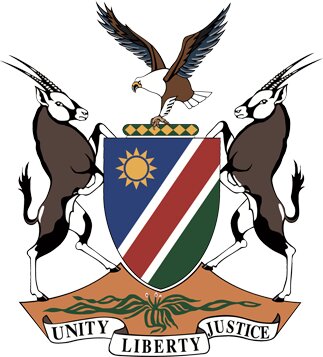Best Native People Lawyers in Namibia
Share your needs with us, get contacted by law firms.
Free. Takes 2 min.
Or refine your search by selecting a city:
List of the best lawyers in Namibia
About Native People Law in Namibia
Native People in Namibia refers to the various indigenous groups living in the country, including the San, Ovahimba, and Nama people. These groups have unique cultural traditions, languages, and customary laws that are important to protect and preserve.
Why You May Need a Lawyer
There are several situations where you may need legal assistance in matters concerning Native People in Namibia, such as land disputes, inheritance issues, cultural property protection, and discrimination cases. A lawyer specializing in Native People Law can help you navigate these complex legal issues and ensure your rights are upheld.
Local Laws Overview
Local laws in Namibia recognize the rights of Native People to their ancestral lands, cultural practices, and traditional governance systems. The Constitution guarantees the protection of these rights, and there are specific legislations, such as the Communal Land Reform Act and the Traditional Authorities Act, that govern the relationship between the government and indigenous communities.
Frequently Asked Questions
1. What rights do Native People have in Namibia?
Native People in Namibia have the right to their ancestral lands, cultural practices, and self-governance. These rights are protected under the Constitution and various legal frameworks.
2. How can I resolve a land dispute with a Native community?
If you are involved in a land dispute with a Native community, it is advisable to seek legal advice from a lawyer specializing in Native People Law. They can help you understand your rights and options for resolving the dispute through negotiation or mediation.
3. Can a non-Native person marry into a Native community in Namibia?
Yes, non-Native persons can marry into Native communities in Namibia. However, it is important to respect and abide by the cultural traditions and practices of the community.
4. What is the role of Traditional Authorities in Namibia?
Traditional Authorities play a key role in the governance of Native communities in Namibia. They are responsible for upholding cultural traditions, resolving disputes, and representing the interests of their communities to the government.
5. How can I protect cultural property belonging to a Native community?
To protect cultural property belonging to a Native community, you can seek legal advice on intellectual property laws, cultural heritage preservation, and customary rights. Working with a lawyer can help you navigate the legal complexities of cultural property protection.
6. What rights do Native People have in regards to natural resources?
Native People in Namibia have rights to access and manage natural resources on their ancestral lands. These rights are protected under the Communal Land Reform Act and other legislations.
7. Can a Native community have their own legal system?
Yes, Native communities in Namibia can have their own customary legal system, which operates alongside the national legal system. This allows for the recognition and protection of traditional laws and practices.
8. How can I support Native People's rights in Namibia?
You can support Native People's rights in Namibia by advocating for the recognition of their land rights, cultural heritage, and self-governance. You can also support local organizations and initiatives working towards indigenous rights and empowerment.
9. Are there specific laws protecting the rights of Indigenous children in Namibia?
Yes, there are specific laws in Namibia, such as the Children's Act and the Education Act, that protect the rights of Indigenous children to education, healthcare, and cultural preservation. These laws aim to ensure the well-being and development of all children, including Native children.
10. How can I learn more about Native People's rights in Namibia?
To learn more about Native People's rights in Namibia, you can consult legal resources, government publications, and academic studies on indigenous rights and customary law. You can also reach out to local organizations and community leaders for insights and guidance.
Additional Resources
For additional resources and information on Native People's rights in Namibia, you can reach out to organizations such as the Namibian Association of Traditional Authorities and the Indigenous Peoples' Organization of Namibia. These organizations offer support and advocacy for indigenous communities in the country.
Next Steps
If you find yourself in need of legal assistance concerning Native People in Namibia, it is advisable to consult with a lawyer specializing in indigenous rights and customary law. They can provide you with tailored advice and representation to protect your rights and interests within the legal system.
Lawzana helps you find the best lawyers and law firms in Namibia through a curated and pre-screened list of qualified legal professionals. Our platform offers rankings and detailed profiles of attorneys and law firms, allowing you to compare based on practice areas, including Native People, experience, and client feedback.
Each profile includes a description of the firm's areas of practice, client reviews, team members and partners, year of establishment, spoken languages, office locations, contact information, social media presence, and any published articles or resources. Most firms on our platform speak English and are experienced in both local and international legal matters.
Get a quote from top-rated law firms in Namibia — quickly, securely, and without unnecessary hassle.
Disclaimer:
The information provided on this page is for general informational purposes only and does not constitute legal advice. While we strive to ensure the accuracy and relevance of the content, legal information may change over time, and interpretations of the law can vary. You should always consult with a qualified legal professional for advice specific to your situation.
We disclaim all liability for actions taken or not taken based on the content of this page. If you believe any information is incorrect or outdated, please contact us, and we will review and update it where appropriate.
Browse native people law firms by city in Namibia
Refine your search by selecting a city.















